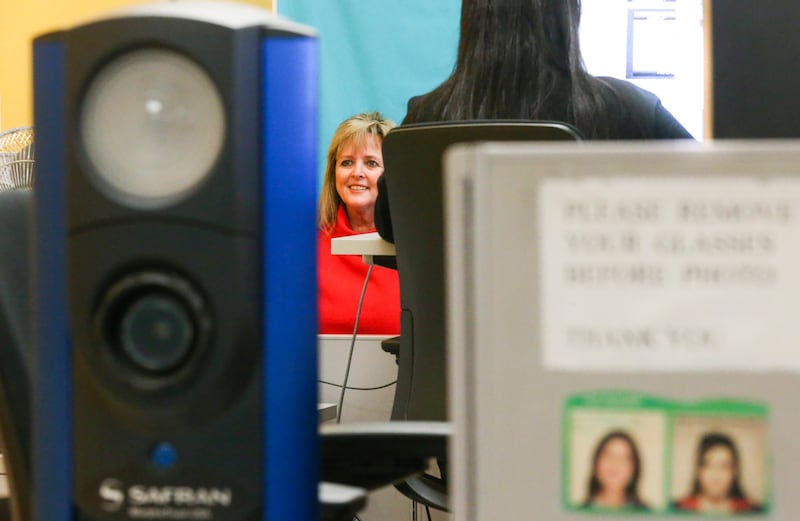SALT LAKE CITY — Utah civil rights advocates continue to voice concerns about how and when facial recognition software is used by law enforcement to scan state-controlled photo databases, some of which include thousands of images of children.
A consensus bill aiming to place some limitations on the use of digital facial recognition systems that use computer algorithms to match a photo against stored images did appear in the 2020 Utah legislative session, but not until late in the process and the proposal failed to get even an initial hearing by lawmakers.
The issue made headlines in 2019 when national and local outlets reported on the long-running practice of making a database of Utah driver’s license photos, including those of minors, available without warrants to local and federal law enforcement agencies to perform dragnet-like searches using advanced facial recognition software programs.
On Tuesday, Utah Department of Public Safety Chief Special Agent Maj. Brian Redd told members of the Law Enforcement and Criminal Justice Interim Committee that even though new legislation was not advanced in this year’s general session, some changes to the way facial recognition searches can be applied to state databases have been implemented.
Redd said those search requests now funnel through the Utah Criminal Justice Information Service system, which logs and tracks all requests. And he said each request now must be accompanied by a criminal case number, a statement demonstrating need for the check and supervisor approval. Redd said all facial recognition searches are overseen by an analyst and that a former practice of sometimes submitting multiple possible matches to law enforcement search requests has been replaced with returning only a single photo match, if any, on those queries.
Redd also noted that the state’s facial recognition software tools have been recently upgraded and that analysts are getting new training to screen for bias issues.
Still civil rights watchdogs want to see rules codified to ensure every government agency is beholden to the same rules.
Libertas Institute President Connor Boyack noted there is no implied or legal consent extended by Utah residents who apply for driver’s licenses or state identification cards to have their images searched just because they’ve obtained those documents. Boyack also wants to see legislation that stipulates what types of crimes warrant conducting facial recognition searches by law enforcement.
American Civil Liberties Union of Utah legislative and policy counsel Marina Lowe said her organization is concerned about research showing racial bias in facial recognition algorithms as well as the continued inclusion of images of minors in databases that are regularly searched by law enforcement.
“We ... continue to have deep concern about the types of algorithms that are being used and the consequences for people of color in our state,” Lowe said. “The driver’s license database base also includes state identification cards, including for some minors under 16 ... children of a very young age whose faces and images are being scanned regularly.”
While Tuesday’s discussion was for informational purposes, one committee member noted a bill file has been opened that will be looking at proposed new facial recognition software rules similar to those found in SB218 from this year’s general session.


